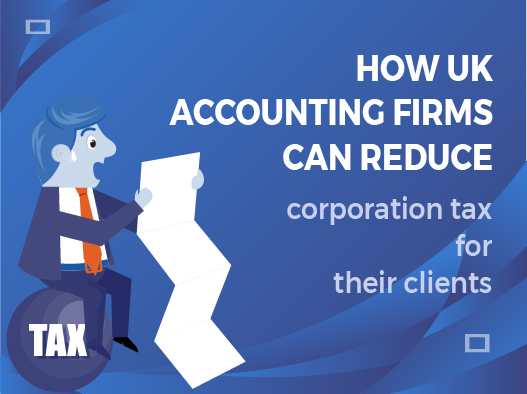UK Organizations should do intelligent tax planning and be aware of the rules that govern how they can pay the correct amount of tax. At the same time, businesses can decrease their corporation tax by following these simple guidelines.
1. Claim Every Expense
Make every effort to claim all of your expenses as being solely for company purposes. In the corporate world, even a single penny counts. Keep track of the small expenses your clients incur for their business operations in order to lower your corporation tax and, as a result, your stress level. Small expenses, such as £3 bus tickets or a £2 pad of paper, can be inconvenient to record, but over the course of a year, they pile up and pay off in corporate tax.
2. Company Mobile Phone
Staying connected has virtually risen to the top of the priority list in the current work-from-home scenario. Companies are considering providing their employees with corporate cell phones to use for business calls to customers and clients. However, the cost of the mobile devices your clients supply to their employees is a tax-deductible expense that can help your customers save money on their corporate taxes. There are specific requirements that must be met in order to file a claim without using a cell phone as a benefit in kind (BIK).
- First and foremost, the telephone must be owned by the company and not by the employee. This means that when they leave the organisation, they must return to it.
- Only one functioning phone can be provided to each employee. It doesn’t matter if the employee is the firm’s director.
- A greater salary cannot be exchanged for a phone.
Finally, any contract for a mobile device with an employee must be made in the company’s name, with the firm footing the payment. As a result, it’s a good idea to make sure that all employees understand that they must not exceed the phone’s contractual limit.
3. Director Salaries
Compensation and dividends are paid to board members of corporations. Receiving a paycheck can be a good method to save money on company taxes. HMRC considers employee compensation to be a tax-deductible business expense. Dividends are also non-deductible and should only be paid from the company’s earnings.
4. Work From Home Allowances
HMRC permits firms to claim a portion of the cost of using personal space as a tax-deductible expense in order to lower corporate tax.
Allowances for working from home come in two flavours:
- Claim a flat rate of £6 per week (an allowance of £312 per year for the 2020/21 tax year & £208 for the previous year). Your client’s limited corporation can rent a room in their home. Your clients’ rental revenue from the limited company must be reported on their personal tax filings.
5. Claim R&D Tax Relief
We hope you aren’t overlooking the tax benefits that your clients are receiving as a result of their innovations.
If your clients are developing new or improved processes, products, or software then it is likely that you can reduce your corporation tax by around £25,000 for every £100,000 spent on innovating. You may be able to save money on taxes if you use research and development allowances to pay for research facilities or equipment.
When a company qualifies for R&D tax credits, some of the usual tax-deductible business expenses, such as salaries, materials, software, and so on, not only lower the corporate tax bill, but a portion of it can be reimbursed to the company in the form of tax credits. It is entirely dependent on the size of the company and whether it is profitable or not.
6. Claim Travel Mileage
You can claim your mileage charges in a variety of ways to decrease your corporation tax, but only to a certain extent. If your clients are a tiny, limited-employee business, you can advise your clients to run their own personal vehicles for business travel and can claim a fixed rate mileage expenses from the company. Using a pool car, business car, or company van, on the other hand, can provide some tax relief to the firm through capital allowances, but they may also attract various kinds of BIK tax for both the employee and the company.
Employees or directors can claim up to 10,000 miles per year at a set rate of 45p per mile if they use their own personal vehicle for work purposes. Fixed charges drop to 25p per mile once you reach this limit.
Note that you can only claim mileage for business activities; you cannot claim mileage for day-to-day commuting to work.
AcoBloom International is an Indian accounting and tax outsourcing firm that helps accounting firms in the United Kingdom and the United States achieve long-term growth and profitability. We’ve been assisting UK accounting businesses and US CPA firms as their trusted accounting outsourcing partner for almost a decade, working not just as accountants but also as business consultants to help them achieve long-term growth and profitability.
We have the necessary expertise and experience to assist accounting organisations in the UK and the US with complicated business solutions in the areas of accounting, taxation, and payroll. Contact us immediately for accounting services in India that are rapid, efficient, and cost-effective.
